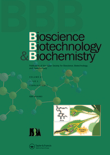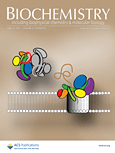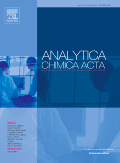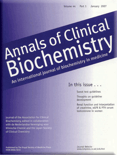
ANALYTICAL BIOCHEMISTRY
Scope & Guideline
Innovating Analytical Techniques for Tomorrow's Science
Introduction
Aims and Scopes
- Biochemical Sensors and Assays:
The journal focuses on the development and validation of various biochemical sensors, including electrochemical, optical, and immunosensors, for detecting biomolecules, pathogens, and environmental pollutants. - Analytical Method Development:
There is a strong emphasis on the development of novel analytical methods, including LC-MS/MS, GC-MS, NMR, and spectroscopic techniques, aimed at enhancing the sensitivity and specificity of biochemical analyses. - Biomolecular Characterization:
Research often includes the characterization of biomolecules, such as proteins, nucleic acids, and metabolites, employing advanced techniques to understand their structure and function. - Microfluidics and Point-of-Care Testing:
The journal features studies on microfluidic devices and point-of-care diagnostics, showcasing innovations that improve the accessibility and efficiency of biochemical testing. - Nanotechnology in Biochemical Analysis:
ANALYTICAL BIOCHEMISTRY frequently publishes papers on the use of nanomaterials and nanotechnology to enhance the performance of biosensors and analytical assays. - Metabolomics and Proteomics:
The journal covers research in metabolomics and proteomics, focusing on the comprehensive analysis of biological samples to identify biomarkers for diseases and assess biochemical processes.
Trending and Emerging
- Advanced Biosensing Techniques:
There is a significant rise in research focusing on advanced biosensing techniques, including CRISPR-based sensors and nanomaterial-enhanced detection methods, which offer higher sensitivity and specificity. - Integration of Machine Learning:
Recent papers increasingly incorporate machine learning and artificial intelligence to enhance data analysis, biomarker discovery, and predictive modeling in biochemical research. - Environmental and Food Safety Applications:
Research addressing environmental monitoring and food safety has gained prominence, reflecting growing societal concerns over contaminants and pathogens in food and the environment. - Personalized Medicine and Biomarker Discovery:
The journal is seeing an uptick in studies related to personalized medicine, particularly those aimed at identifying biomarkers for cancer and other diseases, which is crucial for tailored therapeutic approaches. - Interdisciplinary Approaches:
Emerging interdisciplinary research that combines biochemistry with fields such as materials science, bioinformatics, and nanotechnology is becoming more prevalent, showcasing the integration of diverse scientific domains.
Declining or Waning
- Traditional Biochemical Assays:
There is a noticeable decrease in studies focusing on traditional biochemical assays, such as colorimetric and fluorescence-based assays, as researchers shift towards more innovative and sensitive methods. - Basic Biochemical Techniques:
Papers that report on basic biochemical techniques, such as standard enzyme assays without significant modification or advancement, have become less frequent, possibly overshadowed by more complex and integrated approaches. - In vitro Cell Culture Studies:
Research centered solely on in vitro cell culture methods, without further application in vivo or in clinical settings, appears to be waning as the field moves towards more translational and applicable research. - General Reviews without Novel Insights:
The journal has published fewer general reviews that do not provide novel insights or advancements, as there is an increasing demand for publications that contribute original data or innovative methodologies.
Similar Journals

BIOSCIENCE BIOTECHNOLOGY AND BIOCHEMISTRY
Bridging Biology and Technology for Tomorrow's SolutionsBIOSCIENCE BIOTECHNOLOGY AND BIOCHEMISTRY, published by Oxford University Press, stands out as a vital resource for scholars and professionals in the fields of biotechnology, biochemistry, and analytical chemistry. With an ISSN of 0916-8451, this esteemed journal has been publishing significant research since its inception in 1988, focusing on the convergence of biological sciences and their technological applications. The journal is recognized within several important categories, holding a Q3 ranking in prominent areas such as Analytical Chemistry, Applied Microbiology and Biotechnology, and Biochemistry, among others, as of 2023. Its diverse scope fosters innovation, inviting submissions that address contemporary challenges and advancements in life sciences. Although currently not open access, it offers invaluable insights and findings essential for researchers, professionals, and students dedicated to pushing the boundaries of science. With its rigorous peer-review process, BIOSCIENCE BIOTECHNOLOGY AND BIOCHEMISTRY continues to contribute significantly to the scientific community, solidifying its reputation as a key publication for those exploring the dynamic interplay of biology and technology.

BIOCHEMISTRY
Fostering collaboration in the world of biochemistry.BIOCHEMISTRY is a premier academic journal published by the American Chemical Society, dedicated to advancing the field of biochemistry through the dissemination of high-quality research. With an ISSN of 0006-2960 and an e-ISSN of 1520-4995, this esteemed publication has been a vital resource since its inception in 1962 and continues to contribute to the scientific community, boasting a remarkable Q1 ranking in the field as of 2023. The journal's well-curated content emphasizes fundamental biochemical research, molecular genetics, and innovations in biochemical techniques, catering to a diverse audience of researchers, professionals, and students. Although not an open-access publication, BIOCHEMISTRY plays a crucial role in facilitating knowledge exchange and fostering academic collaboration globally, making significant contributions to the understanding of the biochemical processes that underpin life.

CHEMICAL PAPERS
Advancing Innovation in Chemical SciencesChemical Papers is a distinguished scientific journal published by Springer International Publishing AG, catering to the fields of Biochemistry, Chemical Engineering, and Materials Chemistry. With an ISSN of 0366-6352 and an E-ISSN of 2585-7290, this journal has been a pivotal platform for the dissemination of research findings since its inception in 1973. Over the years, it has maintained a strong academic presence, as evidenced by its Q2 and Q3 rankings in several pertinent categories as of 2023, including Chemical Engineering and Industrial and Manufacturing Engineering. Although the journal is not currently Open Access, it remains an invaluable resource for researchers and professionals across its scope, promoting the advancement of knowledge in chemical sciences and fostering innovation within the industry. The publication is headquartered in Cham, Switzerland, contributing to a global dialogue on chemical research and its applications.

COMPARATIVE BIOCHEMISTRY AND PHYSIOLOGY B-BIOCHEMISTRY & MOLECULAR BIOLOGY
Unraveling Biochemical Mysteries Across SpeciesComparative Biochemistry and Physiology B: Biochemistry & Molecular Biology, published by Elsevier Science Inc, is a premier journal dedicated to the field of biochemistry and molecular biology with a specific focus on comparative analyses across various biological systems. Since its inception in 1971, the journal has made significant contributions to our understanding of the biochemical and physiological processes that differentiate organismal function across animal and aquatic life. The journal holds a commendable position in the academic community, evidenced by its 2023 rankings, which place it in the second quartile for Animal Science and Zoology and Aquatic Science, and the third quartile for both Biochemistry and Molecular Biology as well as Physiology. Researchers and students can access cutting-edge research through this highly respected publication, which continues to influence the future of biological sciences. While currently not an Open Access journal, its rigorous peer-review process ensures that only high-quality articles are disseminated, further solidifying its role as a critical resource for professionals and academics alike seeking to explore the intricate relationships between biochemical structures and physiological functions.

Analytica Chimica Acta
Catalyzing interdisciplinary collaboration in analytical sciences.Analytica Chimica Acta is a prestigious peer-reviewed journal published by ELSEVIER, renowned for its significant contribution to the fields of analytical chemistry, biochemistry, environmental chemistry, and spectroscopy. Established in 1947, this journal has solidified its reputation, reflected in its impressive impact factors and Scopus rankings, including a Q1 classification in Analytical Chemistry and Spectroscopy, and a Q2 ranking in both Biochemistry and Environmental Chemistry. With its comprehensive scope, Analytica Chimica Acta aims to publish innovative research, critical reviews, and technical notes that advance the understanding and application of analytical methods. As an essential resource for researchers, professionals, and students alike, it encourages the dissemination of high-quality research that addresses contemporary challenges in chemical analysis and promotes interdisciplinary collaboration. While the journal operates primarily on a subscription basis, it also offers unique opportunities for authors to reach a broad audience and engage in the global scientific discourse.

Moscow University Chemistry Bulletin
Fostering Collaboration and Knowledge in ChemistryMoscow University Chemistry Bulletin is a distinguished academic journal dedicated to advancing the field of chemistry, published by PLEIADES PUBLISHING INC. With an ISSN of 0027-1314 and an E-ISSN of 1935-0260, this journal provides a platform for researchers, professionals, and students to explore a wide range of topics in general and specialized chemistry. While it holds a current Q4 ranking in the “Chemistry (miscellaneous)” category according to Scopus, the journal is committed to broadening its scope and visibility, aiming for greater impact in the global scientific community. Moscow University Chemistry Bulletin focuses on the publication of cutting-edge research, reviews, and discussions that stimulate innovation and collaboration. Although it is not an Open Access journal, it plays a crucial role in disseminating knowledge and fostering academic dialogue within the field, as it converges towards significant findings from 2004 to 2024. The continuous development of its content holds the potential to attract a diverse readership, making it a valuable resource for those involved in the chemical sciences.

CHINESE JOURNAL OF ANALYTICAL CHEMISTRY
Advancing Analytical Excellence in ChemistryCHINESE JOURNAL OF ANALYTICAL CHEMISTRY, published by SCIENCE PRESS in China, stands as a prominent platform in the field of analytical chemistry since its inception in 1989. With its ISSN 0253-3820 and E-ISSN 1872-2040, the journal maintains a vital role in disseminating empirical research and innovative methodologies, contributing to the advancement of analytical techniques and their applications. The 2023 Scopus ranking positions the journal in the third quartile (Q3) within its category, reflecting a respectable standing among its peers. Researchers, professionals, and students alike engage with a broad range of topics, from instrumental analysis to environmental monitoring, each aiming to foster further scientific inquiry. Although it does not currently offer Open Access, the journal's rich repository of knowledge continues to be an essential resource for those in the analytical chemistry community, with an enduring commitment to scientific excellence and collaboration.

CHEMICKE LISTY
Connecting Chemists Across Borders and IdeasCHEMICKE LISTY, an esteemed journal established in the Czech Republic, focuses on the realm of Chemistry, particularly in miscellaneous areas that drive innovation and research in the field. Published by CHEMICKE LISTY, this journal has been a platform for scholarly articles since 1996, providing valuable insights and findings up to 2024. Although classified within the Q4 quartile and holding a Scopus rank of 342 out of 408 in the Chemistry General Chemistry category, it serves as a critical resource for emerging scientists and professionals seeking to broaden their understanding and contribute to the chemistry community. With its traditional print and electronic ISSN numbers (0009-2770 and 1213-7103, respectively), the journal continues to promote the dissemination of key research, stimulating academic discourse and advancements in Chemistry. The central office is located at NOVOTNEHO LAVKA 5, PRAGUE 6 116 68, CZECH REPUBLIC. Researchers, students, and enthusiasts are encouraged to explore the diverse articles published in CHEMICKE LISTY, as it remains an important touchstone for both local and international Chemistry discussions.

ANNALS OF CLINICAL BIOCHEMISTRY
Exploring Innovations in Biochemical Research.The Annals of Clinical Biochemistry, published by SAGE Publications Inc, is a prestigious journal that has been pivotal in advancing the field of clinical biochemistry since its inception. With an ISSN of 0004-5632 and an E-ISSN of 1758-1001, this journal provides a platform for high-quality, peer-reviewed research articles, reviews, and case studies that cover a wide range of topics, including biochemical analysis, diagnostic methodologies, and the latest advancements in clinical practices. As a recognized leader in the field, it holds a Q2 ranking in both Clinical Biochemistry and Miscellaneous Medicine categories, showcasing its contribution to the evolving landscape of medical science. The journal’s impact is further underscored by its strategic emphasis on fostering collaboration between researchers and healthcare professionals. Although it does not provide Open Access options, the accessible subscription model ensures that vital research remains within reach of academic and clinical institutions. The Annals of Clinical Biochemistry aims to promote the understanding and application of biochemical techniques in clinical settings, ensuring it remains an essential resource for researchers, professionals, and students alike.

Metabolomics
Shaping the Future of Endocrinology and MetabolismMetabolomics is a distinguished academic journal published by SPRINGER, dedicated to advancing the field of metabolomics and its applications in various biochemistry-related domains. With a focus on innovative research in biochemistry, clinical biochemistry, and endocrinology, diabetes, and metabolism, this journal holds a significant position, being categorized in the Q2 quartile across multiple fields in the 2023 rankings. The journal is indexed with notable metrics: ranking 73rd in Endocrinology, Diabetes and Metabolism and 38th in Clinical Biochemistry on Scopus, demonstrating its impactful contribution to the scientific community. Established in 2005, Metabolomics provides a vital platform for researchers, professionals, and students to access high-quality research, facilitating advancements in our understanding of metabolic processes and their implications in health and disease. Access options include subscription-based reading, ensuring that valuable insights are available to a broad audience across the globe.